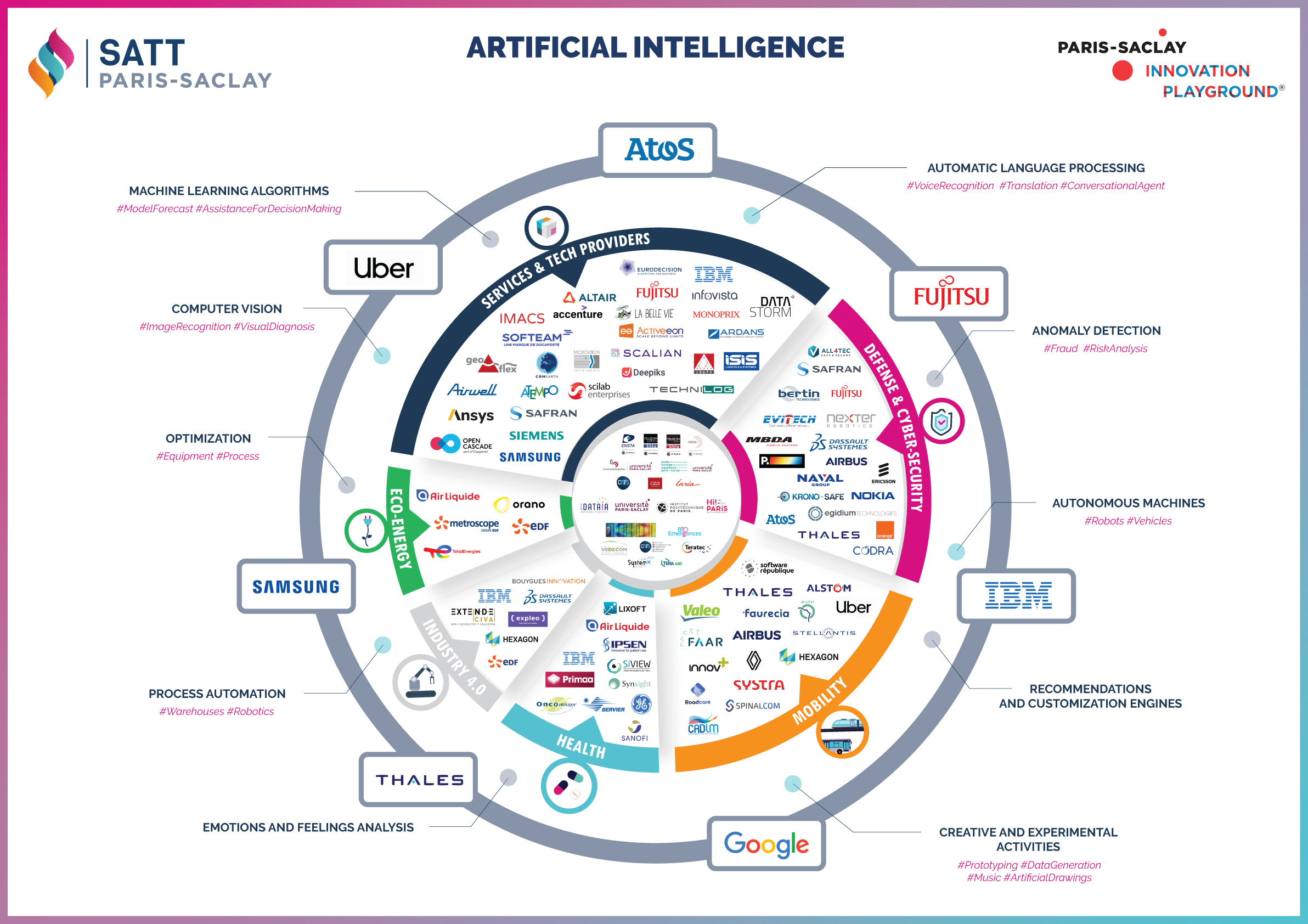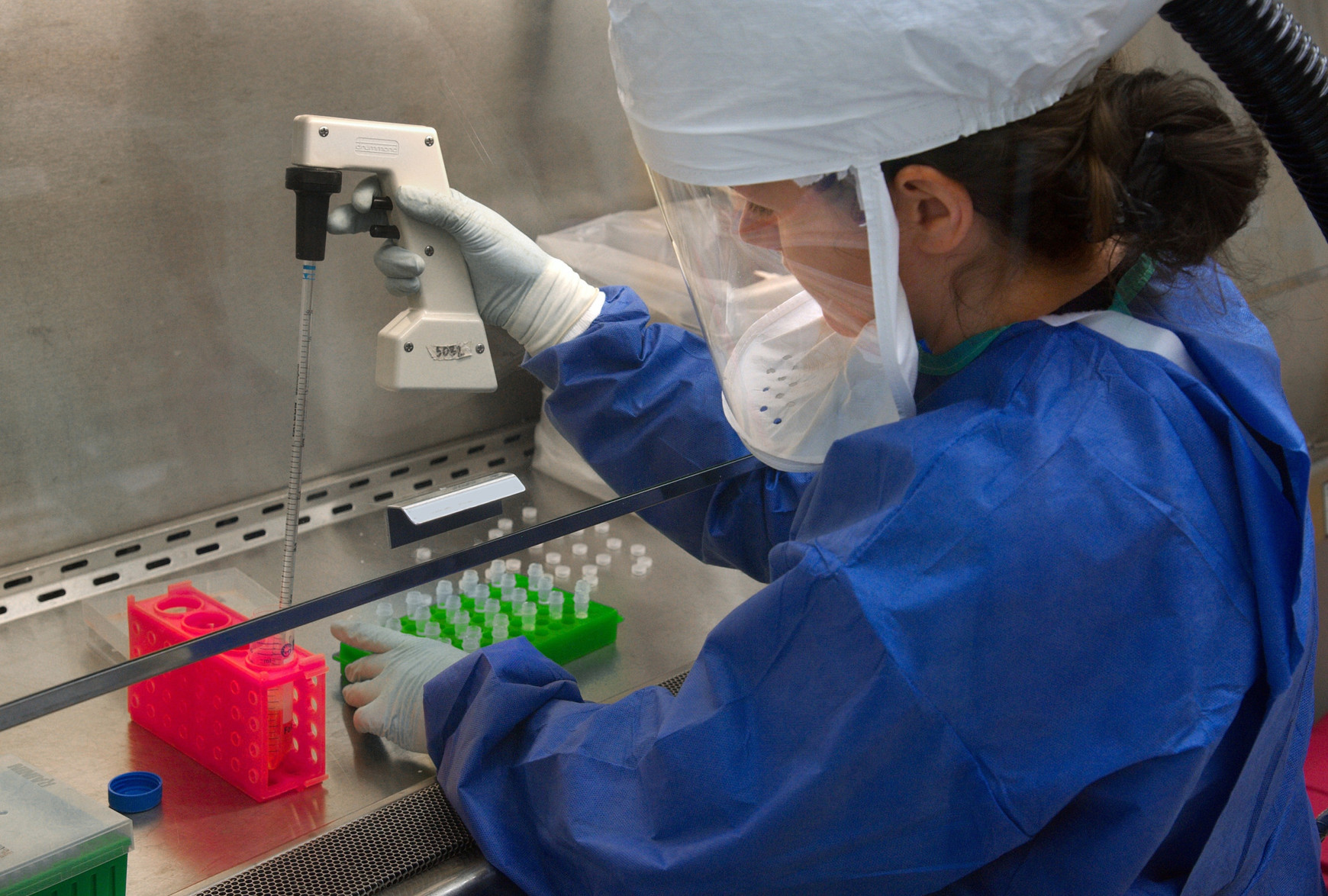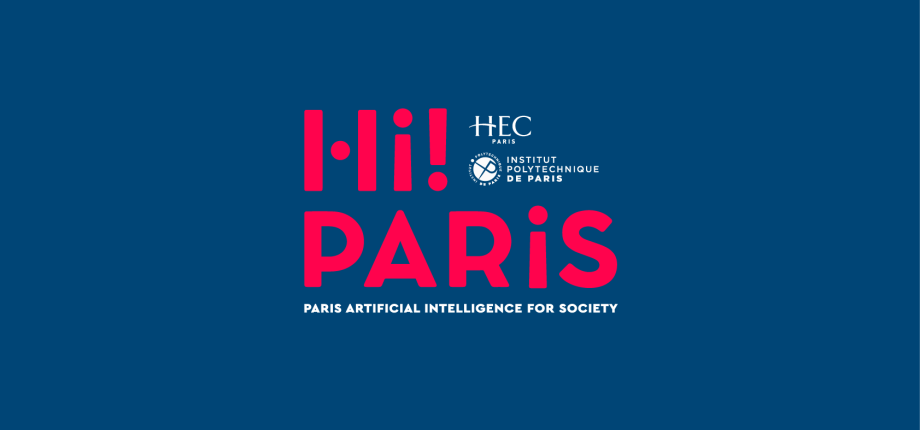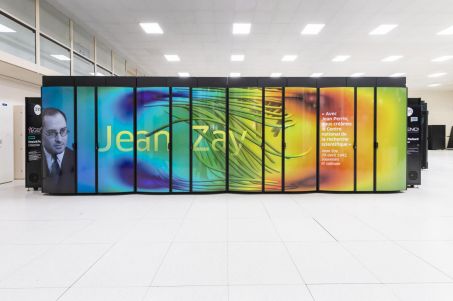Paris-Saclay, a leader in digital technologies
Due to its size, the wealth and diversity of its actors, the density of deployed skills, and a significant cross-disciplinary approach fostering some of the most disruptive innovations, the scientific and technological hub of Paris-Saclay now occupies a prominent position in the field of digital technologies in France. Among the strengths of the sector in the region: a leading position at the cutting edge of innovation in key digital technologies such as simulation, digital twin, machine learning algorithms, smart sensors, data processing, and analysis… Over the years, its stakeholders – researchers, scientists, engineers – have developed major skills and highly sought-after expertise, strongly demanded by the strategic industrial sectors of the region in response to their future challenges.
Four major application areas stand out as key pillars of the sector in the region: artificial intelligence, quantum computing, cybersecurity, and smart manufacturing.

Digital technologies

À Paris-Saclay, des groupes industriels de renommée mondiale
Voir plus
The Centre Quantum-Saclay : Quantum under the microscope
Aware of the technological importance of the second quantum revolution, Paris-Saclay University and Institut Polytechnique de Paris have created Quantum-Saclay, the interdisciplinary center for quantum science and technology of Paris-Saclay. In collaboration with CNRS, CEA, Inria, and ONERA, Quantum-Saclay brings together more than 80 teams from the region, with partnerships involving major industrial groups such as Thales, EDF, TotalEnergies, Air Liquide, and IBM, as well as iconic startups in the field such as Pasqal and Quandela. The research conducted by these teams covers a wide range of areas, from fundamental studies to the development of high levels of technological maturity in quantum communications and photonics, quantum computing, quantum sensors, quantum simulation, quantum and topological matter, quantum computing, as well as the development of enabling technologies. The center also coordinates training activities to meet the objective set by the national quantum plan to double the number of PhDs in quantum science and technology in the very near future. Paris-Saclay, which combines university education and engineering programs from some of the most prestigious schools, is the unique place to meet this challenge in close interaction with the industrial environment.

Exemplary interdisciplinary organizations
Beyond its scientific and technological excellence, the value of the Paris-Saclay cluster lies in its ability to facilitate bridges between scientific and technological disciplines, and more broadly in its collective dynamics that promote interdisciplinarity and transversality, one of its greatest assets.
A number of interdisciplinary and collective initiatives developed in recent years to promote the growth of digital technologies are particularly exemplary. This includes the Institut DATAIA, created by Paris-Saclay University, and the Hi! Paris Center, from Institut Polytechnique de Paris, in the field of artificial intelligence. It also includes H-CODE, an interdisciplinary center at Paris-Saclay University bringing together communities of researchers and engineers working on concepts of control theory and decision-making in the field of robotics. Additionally, CONTINUUM, an EquipEx+ project led by CNRS aiming to create a collaborative research infrastructure bringing together 30 platforms operating in the field of digital technology towards humans in France.
The CIEDS – Interdisciplinary Center for Defense and Security – initiated by Institut Polytechnique de Paris to detect and develop breakthrough technologies for defense needs in the areas of cybersecurity, robotics and artificial intelligence, quantum technology, imaging and modeling for systems engineering, and defense innovation management, as well as the Technological Research Institute (IRT) SystemX multiplying connections between players in the region to accelerate the digital transformation of industry, services, and territories, are also exemplary.
Based on synergies between disciplines and skills and collaboration between academic and industrial actors, these collaborative and multidisciplinary innovative initiatives are a true signature of the Paris-Saclay cluster.

Hi! PARIS - Interdisciplinary center on AI & Data
Institut Polytechnique de Paris brings together world-class researchers in data science and artificial intelligence. In collaboration with HEC Paris, IP Paris has created an interdisciplinary Center on data science and artificial intelligence aiming at developing
projects with industrial and societal applications.
Paris-Saclay also educates the future experts in digital technologies
Paris-Saclay University, Institut Polytechnique de Paris, and academic partners are constantly upgrading their training programs to provide professionals with new skills. This is what companies in the healthcare sector need to continue innovating, as well as to maintain equipment that incorporates new technologies








